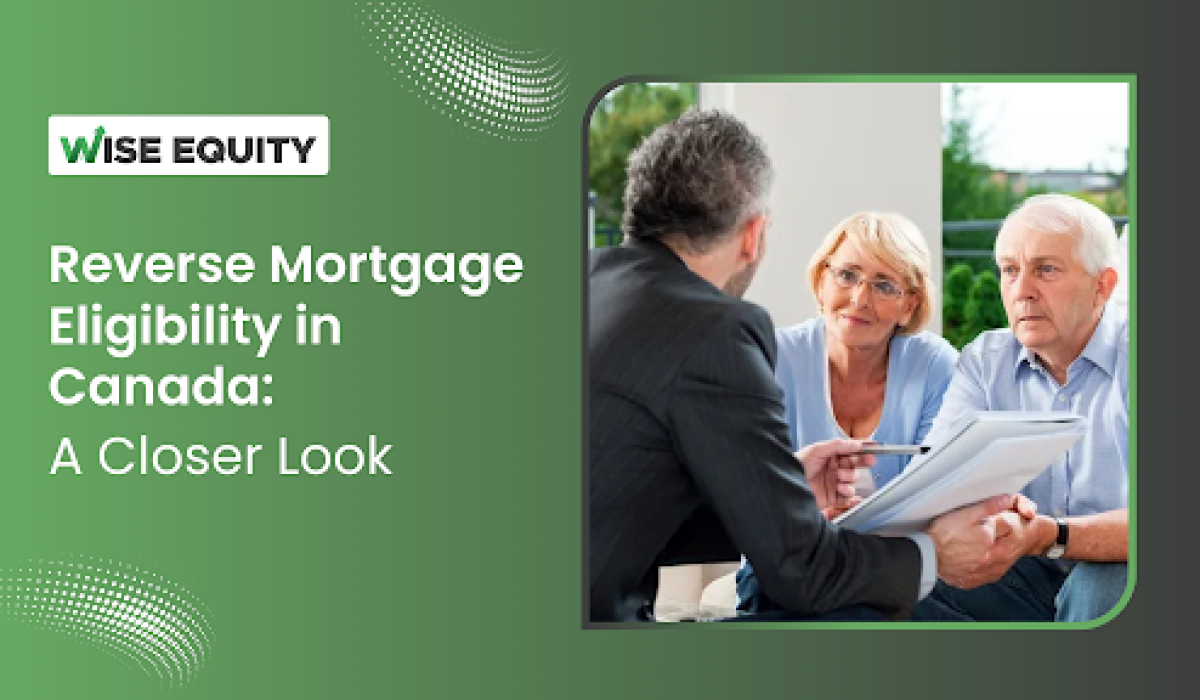For Canadian seniors, retirement often brings new financial challenges. Rising living costs, healthcare expenses, and reduced income can create stress. Fortunately, a reverse mortgage can provide extra income without requiring a move. Still, not every homeowner qualifies, making it important to understand reverse mortgage eligibility in detail.
In this article, we’ll explore the rules around who qualifies, how lenders decide eligibility, and how Wise Equity helps Canadians navigate this financial solution.
Basic Eligibility Requirements
Several key factors determine reverse mortgage eligibility in Canada. Applicants must:
- Be at least 55 years of age.
- Own a home in Canada that serves as their primary residence.
- Have significant equity in their property.
- Stay current with property taxes and insurance.
These requirements ensure that reverse mortgages are accessible to seniors while protecting lenders from unnecessary risk.
Age and Homeownership
The minimum age to qualify is 55, and if there are two homeowners, both must meet this requirement. The amount of money available usually increases with age, as older applicants are seen as lower risk to lenders.
Ownership must also be clear, meaning the home cannot have disputes or unresolved title issues.
Equity Requirements
Reverse mortgages are based on home equity, which is the property’s value minus any outstanding loans. Generally, applicants need at least 50% equity. The more equity you have, the more money you can access.
For instance, a senior with a fully paid-off home worth $600,000 will qualify for a larger reverse mortgage than someone who owes $250,000 on a $500,000 property.

Property Location and Condition
Homes must be in eligible Canadian regions. While most urban areas are covered, some lenders may avoid rural or remote locations. Additionally, homes must be in good condition since property value determines the loan amount.
Other Financial Considerations
Unlike conventional loans, income and credit history aren’t central to reverse mortgage eligibility. That said, lenders may check for unpaid taxes or large outstanding debts. Applicants must also maintain homeowner’s insurance.
Why Eligibility Matters for Seniors
Knowing the eligibility criteria helps seniors:
- Avoid applying for loans for which you won’t qualify.
- Prepare documents and property requirements in advance.
- Compare financial alternatives more effectively.
This preparation makes the process smoother and ensures realistic expectations.

Benefits of Reverse Mortgages for Eligible Seniors
Eligible homeowners enjoy several advantages:
- Stay in Your Home – Continue living in a familiar space.
- Tax-Free Funds – Money received is not considered taxable income.
- No Monthly Payments – Repayment only occurs when you move, sell, or pass away.
- Flexibility – Use funds for any purpose, from healthcare to travel.
These benefits highlight why many seniors find reverse mortgages appealing.
Wise Equity’s Role in Eligibility Guidance
Deciding if you meet reverse mortgage eligibility criteria can be complex. Wise Equity helps by:
- Reviewing age, equity, and property requirements.
- Using calculators to estimate available funds.
- Offering personalized advice for retirement planning.
- Ensuring compliance with Canadian regulations.
Their expertise ensures seniors make decisions with clarity and confidence.
Conclusion
Reverse mortgage eligibility in Canada depends on age, equity, property type, and location. By meeting these requirements, seniors can access a valuable financial tool to ease retirement pressures.
With guidance from Wise Equity, Canadian homeowners over 55 can explore their options fully, making smarter choices about unlocking home equity and achieving retirement security.

